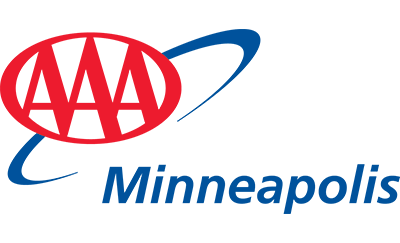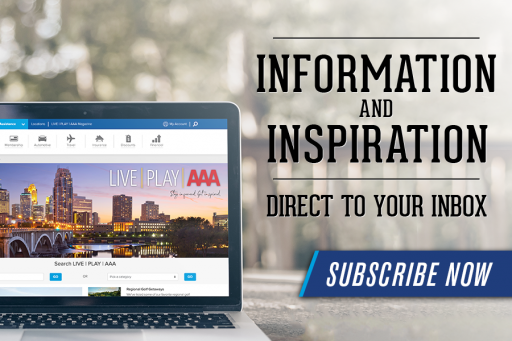Backdoor Roth

Chances are that you may have heard of a retirement planning strategy known as the “Backdoor Roth.” But, you might be questioning what it is and why it’s potentially valuable. Below, we dive deep into answering these questions to help you determine whether it’s a good strategy for you.
A Quick Primer on Roth IRA/401(k)
A Roth IRA or Roth 401(k) gets funded with money you have already paid tax on. It grows tax-free and can be withdrawn tax-free (subject to a host of rules) providing tax diversification to your portfolio. Furthermore, money in a Roth IRA is not subject to Required Minimum Distributions (RMDs), in contrast to other types of retirement accounts which are subject to these distributions at age 70.5 (note: The House of Representatives recently passed legislation that would push the RMD to age 72, so stay tuned on that). Although inheritors of a Roth IRA/401(k) must take mandatory distributions from their inherited share each year, the distributions are not taxable. For these reasons, a Roth IRA/401(k) can result in greater wealth accumulation while also gaining tax advantages.
An Overview of the Backdoor Roth
Saying that the tax code is confusing, complicated, and even nonsensical, is like saying that the sky is blue—it’s pretty much a matter of fact. Case in point: the Roth IRA! Under our current tax law, any individual with an IRA or other eligible retirement account can convert that account to a Roth IRA. Neither your age nor income matter nor does your source of income (i.e., capital gains, earned income, Social Security benefits). Also, the size of your IRA and other eligible retirement accounts are irrelevant.
Imagine that Bill Gates had a billion-dollar IRA (obviously for Gates, that’s well within the realm of reality) and that he wanted to convert his billion-dollar IRA to a billion-dollar Roth IRA thereby eliminating RMDs and allowing the account to grow tax-free for the balance of his life and the lives of his heirs. This transaction, under our tax law, would be perfectly legal. Yes, Mr. Gates would have to pay a hefty income tax on the conversion, but he probably wouldn’t flinch at the tax bill.
In contrast, suppose a husband and wife own a small retail shop. They typically work six or seven days a week putting in 12-hour days. At the end of the year, and after all their hard work and sacrifice, they make a combined $200,000 of income. Surprisingly enough, if this couple simply wanted to contribute $5,500 directly into each of their Roth IRAs, to create a tax-free pot of money from which to pull from during retirement, they could not. In what is truly one of the more bizarre and unfair provisions of the tax code, Congress has placed income limits on the ability to make annual Roth IRA contributions, all while allowing unlimited amounts of money to flow into Roth IRA’s via conversions.
At first glance, then, it would seem that getting new money (not previously transferred from a different retirement account) into a Roth IRA each year would be impossible for investors above the Roth IRA contribution income limits. However, thanks to yet another quirk in the tax code, that isn’t necessarily true. Enter the Backdoor Roth IRA and its big brother, the Mega Backdoor Roth 401(k).
Simply put, the Backdoor Roth IRA is a workaround strategy that allows an investor to get new money into a Roth IRA, even if they earn too much to contribute to a Roth directly. To achieve this, a contribution is first made to a traditional IRA after tax (meaning not deductible), and then, in a second step, that contribution is immediately converted to a Roth IRA, possibly avoiding income taxes on the conversion. Note: The Backdoor Roth IRA is not an actual account. Rather, it is the process in which to get money into a Roth IRA account.
Due to space limitations here, I cannot cover the Mega Backdoor Roth 401(k) to the extent it deserves, but just know that some additional quirks in the tax code and 401(k) rules mean that 401(k) owners have even greater flexibility to move money to Roth.
Caveat Emptor. Rules are complex and professional guidance is strongly recommended. If you would like to discuss how this strategy or any other strategies may be appropriate for you, please contact us at 763-762-3400. Additionally, the Backdoor Roth strategy will be one of several strategies we will discuss at our upcoming seminar, “The Best and Worst Retirement Planning Ideas.” For more information on this seminar, please see the advertisement below.
Steven C. Finkelstein, CFP®, and Megan E. Gehrman® are Principals and Financial Advisors at Sterling Retirement Resources, Inc., 8401 Golden Valley Road, Suite 225, Golden Valley, MN 55427. 763-762-3400.
Securities and advisory services offered through Cetera Advisor Networks LLC, member FINRA/SIPC, a Broker Dealer and Registered Investment Advisor. Some advisory services also offered through Advisornet Wealth Management. Cetera is under separate ownership from any other named entity.
Some IRA’s have contribution limitations and tax consequences for early withdrawals. For complete details, consult your tax advisor or attorney. Distributions from traditional IRA’s and employer-sponsored retirement plans are taxed as ordinary income and, if taken prior to reaching age 59½, may be subject to an additional 10% IRS tax penalty. Converting from a traditional IRA to a Roth IRA is a taxable event. A Roth IRA offers tax-free withdrawals on taxable contributions. To qualify for the tax-free and penalty-free withdrawal or earnings, a Roth IRA must be in place for at least five tax years, and the distribution must take place after age 59½ or due to death, disability, or a first time home purchase (up to a $10,000 lifetime maximum). Depending on state law, Roth IRA distributions may be subject to state taxes. All investing involves risk, including the possible loss of principal. There is no assurance that any investment strategy will be successful. For a comprehensive review of your personal situation, always consult with a tax or legal advisor. Neither Cetera Advisor Networks LLC nor any of its representatives may give legal or tax advice.





